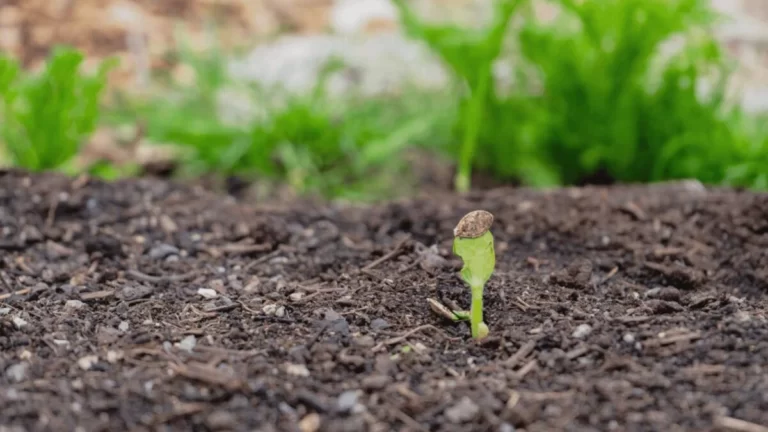If you’re planning on growing eggplants, you may be wondering if they need a trellis. The answer is yes, eggplants benefit greatly from being trained up a trellis. Not only does it save garden space, but it also provides support for the plant’s heavy fruits and improves air circulation and light penetration.
As the vine grows taller, continue to tie it to the trellis every few inches. In addition to providing support, proper fertilization, and moisture retention are essential for healthy eggplant growth.
Garden Trellis for Climbing Plants

If you’re looking to add some vertical interest to your garden, consider using a trellis for climbing plants. Not only do they save space, but they also provide support for heavy vines and improve air circulation and light penetration. When choosing a trellis, look for one made from strong materials such as metal or wood.
Assembling and using them is easy, and many designs are decorative and rustproof. When training your plants up the trellis, gently tie the stem with twine or soft plant ties every few inches as it grows taller. Pruning can also improve overall health by removing lower leaves and promoting air circulation. For best results, make sure to fertilize appropriately and water deeply as needed.
Tutoring eggplants
Tutoring eggplant plants with a trellis net can greatly improve their growth and yield. Using a HORTOMALLAS(r) trellis net is an effective way to support the plants as they grow, preventing the leaves and stems from drying out.
In areas with low humidity, aphyllous pruning may also be necessary. Fruit thinning is also recommended to eliminate small or damaged fruits and promote healthy growth. The use of double-row support netting is considered the most efficient approach for guiding tomato plants.
By providing proper support and care, your eggplants will thrive on their trellises and produce abundant crops. Plus, the vertical element adds visual interest to your garden while saving space below.
Keeping Eggplants upright
Keeping eggplants meatballs upright is essential for their growth and productivity. As the plants mature and bear fruit, they can become top-heavy and fall over, damaging the stems and leaves. To prevent this from happening, a trellis is necessary.
A basic trellis made from sturdy posts and netting or twine works well for eggplants. The trellis should be set up early in the growing season to provide support as the plants develop. As the larger eggplant grow taller, they will naturally climb up the trellis, keeping them off the ground.
In addition to preventing damage to the plant, a trellis also promotes air circulation around the leaves and fruits, reducing the risk of disease. It also makes harvesting easier by keeping the fruits within easy reach. Overall, providing a trellis for your eggplant with vegetable is an important step in ensuring their success in your garden.
Fertilizing Eggplants the right way

Eggplants require high-quality soil and proper fertilization to thrive. Before planting, add a pre-plant fertilizer to the soil. Once the bushy plants start producing fruit, side-dress them with a vegetable-specific fertilizer. Eggplants have high nutrient needs and prefer warm temperatures and high light intensity.
They need full sun for eight to ten hours per day, so choose a sunny spot in your garden for planting. It’s important to detect the first signs of spring and plant after the danger of frost is past. After the flowers bloom, continue providing vegetable-specific fertilizer every few weeks to ensure healthy growth.
Keeping Eggplants moist: Watering requirements
Eggplants need consistent moisture to grow and produce healthy fruit. However, it’s crucial to avoid waterlogged leaves as they can cause powdery mildew. Water deeply but infrequently at the soil level, not at the level of the leaves.
A good watering schedule for eggplants is to provide 1-2 inches of water per week, depending on weather conditions. During hot and dry spells, you may need plenty of water . Yellowing or wilting leaves may indicate root-knot nematodes attacking your plants. To prevent this, ensure a healthy root system by providing adequate moisture without overwatering.
Choosing an Eggplant variety
Choosing the right eggplant variety for your garden is important to ensure a successful harvest. There are many varieties to choose from, each with its unique characteristics. Consider your climate and growing conditions when selecting a variety. Some varieties are better suited for cooler weather and well drained soil while others thrive in hot and humid conditions.
Look for disease-resistant varieties if you live in an area prone to pests and fungus. Consider the size of the eggplant you want to grow. If you prefer smaller sizes, look for varieties like “Fairy Tale” or “Ichiban.” If you want larger fruits, try “Black Beauty” or “Classic.” Pay attention to the number of seeds in the variety as well. Varieties with fewer seeds tend to have a richer flavor and require less preparation time.
In summary, selecting an eggplant seeds variety depends on several factors such as climate, size preference, and seed count. Do your research and choose a variety that suits your gardening needs for a bountiful harvest of delicious eggplants.
Selecting a trellis for eggplants.
Eggplant plants don’t necessarily require a trellis, but providing support can help keep them upright and prevent damage from heavy fruit shape. When choosing a trellis for your eggplants, consider the size of the plant and its growth habit. A simple stake or tomato cage may be enough to support smaller varieties, while larger plants will benefit from a more sturdy trellis system.
Look for trellises that are at least 5 feet tall and made of strong materials like bamboo or metal. A trellis with horizontal supports can also help distribute the weight of the plant and fruit evenly. Consider spacing between each plant when selecting a trellis. eggplants need room to grow and spread out, so choose a trellis that will accommodate multiple plants without crowding.
In summary, choosing a trellis for your eggplants depends on their size, growth habit, and spacing requirements. Selecting the right trellis will ensure healthy plants and an abundant harvest.






